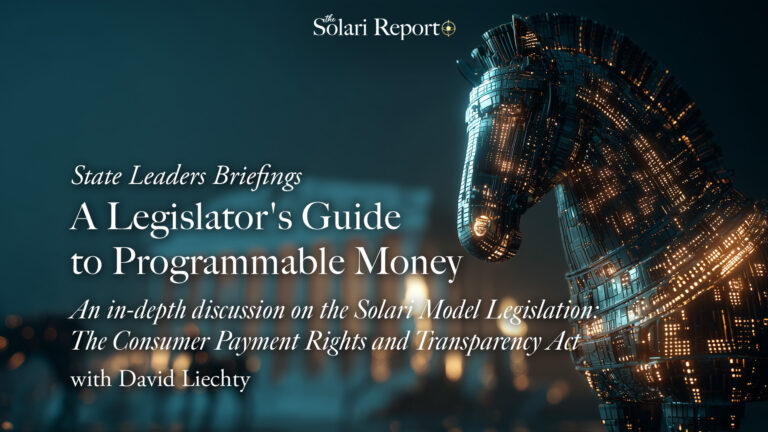At Solari, the invention room is a place in our imagination where we go to collaborate on creating and developing great ideas. There are several protocols that apply in the invention room.
1. We stay in the positive. There is no such thing as a bad or stupid idea. If an idea does not strike us as particularly useful, we say that there are other ideas that are more “wonderful.” We also take personal responsibility to support and given energy as possible to the people in the invention room with us.
2. We avoid decisions. The invention room is for expansion, communication and invention. We don’t contract into decisions in the invention room. For that, we leave the invention room and go to a decision room.
3. No time consequences to the participants. Just because you have an idea, does not mean that you can be held responsible to implement it or anything else that would require your time. Your having an idea in no way commits you to anything that would use your time.
We have been getting more and more communications from our readers with lots of ideas on how to make our world a better place to live. We thought we would create an invention room here on the blog as a way for you to post these ideas.
I would like to add another protocol for this particular invention room..
4. We encourage you to promote ideas which you believe you or yours can implement on a financially sound and attractive way. We think there is nothing more powerful than useful ideas that can create income for the entreprenuers who implement them as well as create income and jobs for others. So if you think what you do can help our readers, please feel free to say so and post links. If we disagree, we reserve the right to not approve your post.
If you have ideas or comments that you would like to reach the Solari community, please place them as a comment to this post.
Thanks!
Catherine and the Solari Team




















































































































http://www.edar.org – Everyone Deserves A Roof. May be you will need one or may be you can provide one for someone who does.
Dear Catherine,
Thank you for providing this format for the expression of various ideas. I don’t know that we need so much a different political system or financial system as we need a more enlightened populace. If we had the latter, then everything else would follow in due course. Anyway we have a tremendous, overwhelming training in our society about how great desire is, how it can lead us to happiness if it is just fulfilled. If I just had this…, if I just had that…. You know the story. But what if we can’t fulfill our desires? What if desire itself was the problem? How much training have we received from the corporate media or even our own school system to deal with desire thwarted? Chances are next to nothing. Isn’t this unfair? Being a psychiatrist I work with people a lot who have had their desire thwarted, for example the breakup of their primary relationship or a life turned upside down due to addiction. What then is the solution? Is it more Prozac? Or is there a different avenue to turn to? Because of (what seemed to me) Divine inspiration and long-standing spiritual practices, especially in Buddhism, some of the answers came to my mind. (At least what seemed to be answers.) I wrote them down. I practiced and taught them. I taught them to patients with the idea that they could have these cognitive techniques or tools in their mental toolbox and use them as they feel fit, or not use them if they find them not useful or even harmful. What I found was that at least for some people, the tools really did seem to work. They helped the person turn their life around. So I had some of the presentations videotaped and made available for sale. They can be purchased through Amazon or through my website www(dot)fivebrocade(dot)com. What I tell people, and even have told patients, that it is fine to pooh-pooh them, but try them first before you do this. Be fair. If they don’t work then fine, diss them if you wish. But if they do work then perhaps you have some tools that can enhance your life and help you extract yourself from the Matrix. Sincerely, Bill Pryatel
Great post I really enjoyed it and will be coming back shortly and linking back to your site from mine.
Walter Burien poses an interesting scenario @ http://CAFR1.com/1+1%3D2.html , but uses slightly obtuse phrasing. Anyone care to state his case more clearly to the average person?
Interesting post board. Would anyone be interested in working on a business plan for World Peace. War has been big business for years and from my perspective we have much more opportunity in profiting from Peace. I haven’t seen anyone actually describe what the outcome of world peace looks like, nobody has set a time line, nobody has a clear picture in how this can be accomplished, but I think it can be done very easily. The skill set posting on this board has more then enough to get the job done, nobody has yet to put all the pieces to gether yet. What have we got to loose?
Judy
What is the current state of your software? I’m terribly interested in contributing. Have you thought of making it open source? There is not another group of more dedicated minds than the open source community who are in it to make things better for all man kind.
Hi Jullian,
are you yourself actively involved in open-source projects? If so, which and what role do you have there? We can take it further via email as this is not really a discussion board or the like. My email is “my firstname” @ caloom.com
jeroen
Dear Solari team and people,
I have split up this message in 3 parts:
My project , a Question and Login information
About me
Project
I have started to develop a project called Caloom, which is derived from whacking two words together:
Carta+ Bloom. The idea behind this is I wanted to say something about organically growing and visible on a map… nothing more to it.
The project is roughly in par with what is called Asset Based Community Development (see ABCD Institute. Here is a description of my project:
Caloom is a map-based tool for community development. It provides information for local communities and their citizens about the strengths and resources within a community. The skills of individuals and the services of larger organizations are all useful community assets – anything improves life in the community.
Caloom is all about discovery; the discovery of assets and the discovery of needs. It is about discovering your (local) world. Utilizing community’s assets and uncovering solutions are a means for cohesive community development.
The service supports community involvement and the building of further relationships within a community. Communal cohesion is created when institutions and citizens, their assets and any needs, come together in meaningful ways.
Much can achieved when a community draws on the skills of local residents, the power of associations and the support of institutions. This helps in making use of all these assets and maintaining a sustained use in the future. In other words, the service assists in the utility of existing communal resources.
The service is focused on using the map. In this way the user – whether an individual or an organization – can easily see what is available, happening or needed in the local community or any location of choice.
Question
I have tried 2 years to find funding but always got the same feedback:
“if you do not sell ads or sell user information to the highest bidder we do not finance anything”. This is fine so I tried to find developers to help me out as I am not a programmer. I hired one good programmer who worked i the summer of 2010 on the current version. What I look for and perhaps among you are people who could help me further, is building a team among which 1 or 2 programmers with real world experience and a good heart. Languages used are PHP, MySQL, jquery, openlayers and we use openstreetmap (no google!). My idea abou a collaboration and rewards can be read here, fine tuning is needed tough 😀
Login Information
As said, there is a beta site which fully works but there are some rough edges and the text is not done well and illustrations are missing to name a few.
login information for caloom.com
caldev (username)
Rk45a6 (password)
then either register yourself or use the demo account
demo@caloom.com
Demo2010
About me
I am a Dutch guy living in Finland who grew up under the drawing board of a father who’s primary job was explaining complex systems, power plants e.g., to people. My fascination for complexity was instilled very early on in life and has never left I notice. Along with that came my interest in energy and finance and the strong urge to “create”. Long story short, after a 10 years of working for gov and commerce in internet, service development and product development I turned a corner and decided to “do good”.
A friend an I began to investigate energy decline and soon I came to the conclusion there are many confusing layers piled on top of each other. In discussions with various stakeholders in Finland I noticed a split, some knew about the problems (speculation, letters of credit dependencies, production issues, resource scarcity if any) and many didn’t.
Research and talk alone wasn’t enough for me so I started to think and ponder. What are the consequences of all this and soon enough I came across people warning about credit crisis or housing bubbles, people like Kurt Richebächer. Then I met people working at not for profit organizations, large once who deal primarily with well fare and social issues. Think of getting together single mothers/fathers and create support groups, or, children phone support lines MLL, better food in the home courses Martat. They pointed out to me problems they and partner organizations have to reach people locally. As they depend on volunteers and there is no way for them to organize something easily under the umbrella of the mother organization man initiatives are either not started or die due to lack of presence of visitors.